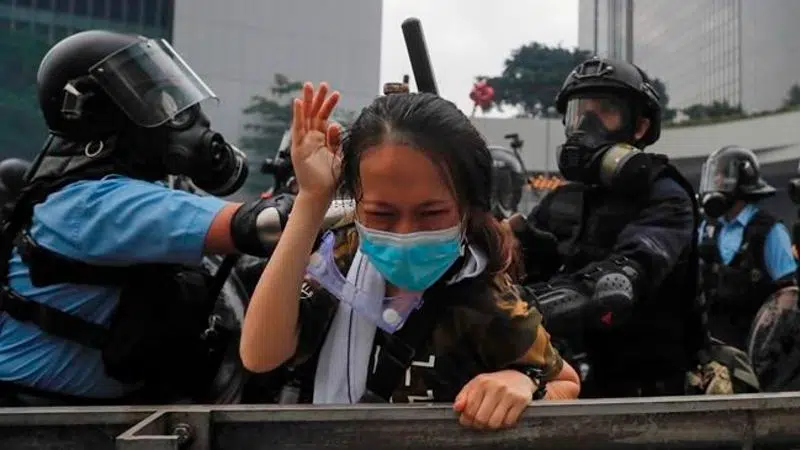
Hong Kong protesters vow to keep fighting extradition law
HONG KONG — Following a day of sit-ins, tear gas and clashes with police, Hong Kong students and civil rights activists vowed Wednesday to keep protesting a proposed extradition bill that has become a lightning rod for concerns over greater Chinese control and erosion of civil liberties in the former British colony.
The violence marked a major escalation of the biggest political crisis in years for the semi-autonomous Chinese territory and forced the delay of legislative debate on the contentious bill.
College student Louis Wong said he considered the blockade of government headquarters and the Legislative Council a success because it appeared to prevent Beijing loyalists from advancing amendments to a pair of laws that would make it easier to send suspected criminals to China.
“This is a public space and the police have no right to block us from staying here,” Wong said, surveying a garbage-strewn intersection in the Admiralty neighbourhood that had been blocked off by security forces after protesters broke through a police cordon and entered the government complex.
